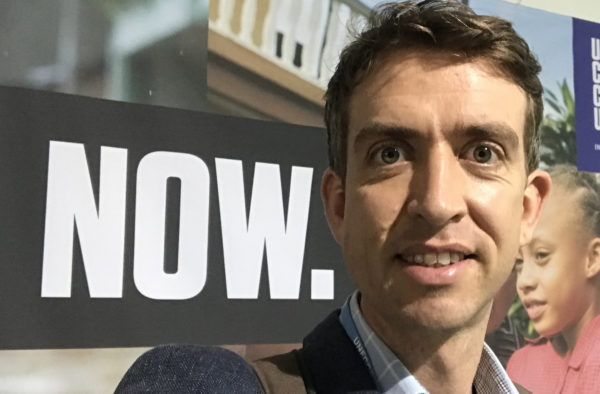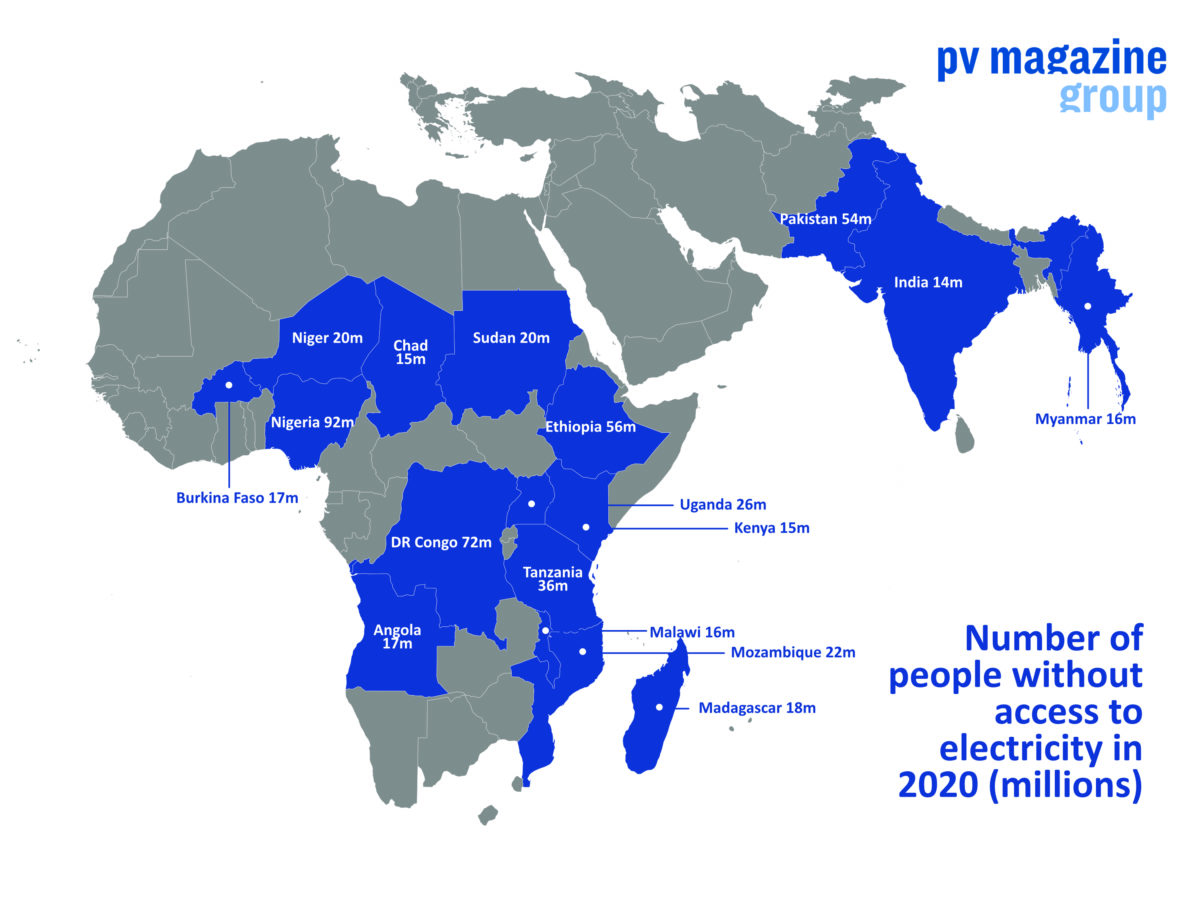Climate finance for developing countries was top of the agenda at the COP27 climate change summit and is seen as a central element of a just energy transition. Many of the developing countries who have contributed the least to climate change are the most vulnerable to it. Not least because they lack access to modern energy services to help them develop and become more resilient. Shockingly, the International Energy Agency (IEA) estimates the number of people without access to electricity is set to rise by almost 20 million this year, to 775 million. It would be the first such rise for decades.

Image: GOGLA
Radically expanding electricity access is a moral imperative. Decentralized renewables are the most effective option for reaching hundreds of millions of people living in energy poverty, and to replace highly inefficient diesel generators used by millions more. As the IEA states, there is no pathway to net-zero without first achieving universal electricity access. More than that, without electricity access, the energy poor will be left to combat the ravages of climate change without the tools to address it. Off-grid solar lighting, communications, irrigation, and cooling are vital to build food, energy, and water security; electrify healthcare; power emergency response; and help families, enterprizes, and nations become more resilient to climate risks.
And yet, the funds committed to the off-grid solar market remain stubbornly low. GOGLA's “Off-Grid Solar Market Trends Report 2022” shows the last decade has seen just $2.5 billion invested in off-grid solar, leaving a $25 billion gap to meet the UN sustainable development goal of universal access to electricity. Just 3% of the annual international climate finance target – $3 billion per year – is needed for off-grid electricity to contribute to that aim. This is a drop in the ocean compared to the $440 billion governments around the world spent on fossil fuel subsidies last year.
COP27 gave some hope of a step change in ambition.
The World Bank launched the DARES (distributed access through renewable energy scale-up) platform, with the objective of tripling the pace of electrification in Africa by developing innovative instruments to support the uptake of decentralized renewable energy. The Beyond the Grid Fund for Africa announced an additional €19 million ($20 million) from new donor Norway, bringing the fund to €126 million which will be used to reach many more off-grid beneficiaries and sustainable businesses.
Off-grid reach
The REACH program – championed by US nonprofit Acumen, the Green Climate Fund, US development body Power Africa, and the World Bank – was announced, with an ambition to target support to countries without off-grid solar markets to rapidly expand access.
Philantropic organizations made bold funding commitments, starting ambitious alliances and programs promising to accelerate a just energy transition and promote green growth. Top among these is the Global Alliance for People and Planet, founded by the Rockefeller and Ikea foundations, which launched its first impact report at the conference: a clarion call to end energy poverty by using distributed renewable energy.
GOGLA remains hopeful such organizations can embrace off-grid solar as part of their bold ambitions; it is not possible to end energy poverty without solar lanterns and solar home systems. These are crucial steps, which recognize the importance of off-grid solar but they are not enough. As philanthropy, donor governments, and climate finance institutions reflect on COP27 and formulate plans to achieve a faster and more just clean energy transition, GOGLA urges them to increase their support to off-grid solar in three key areas.
Cheap loans for start-ups
While the off-grid industry has already reached 490 million people, it needs many more companies if it is to play its part in achieving universal electrification. There is a particular shortage of early-stage financing, specifically for smaller and locally-owned companies, often in nascent or emerging markets. The cost of debt remains eye-wateringly high. Grants and blended, public-and-private finance are essential to build the market and unlock private capital.
This will be one of the most effective ways for philanthropic and public money to leverage private investment.
Innovation grants
The sector needs to serve new regions and lower-income people, provide a wider range of products and services, and unlock local enterprize. More funding is needed to help companies innovate, start up, and prove their concepts.
This will create one of the most catalytic and impactful industries of the decades ahead.
Subsidies
With many industries creating negative effects with impunity, the off-grid solar industry, by contrast produces positive benefits which are not sufficiently rewarded. Extra income, in the form of end-user subsidies or results-based finance, could be a game-changer to enhance affordability and sustainability. Supporting off-grid solar companies to gain access to voluntary carbon markets or adaptation finance would unlock another important revenue stream.
This will be the most efficient way of subsidizing energy access.
The off-grid solar industry is ready for investment. It has established a technology and business model that delivers for people and planet. With relatively small sums; philanthropy, donor governments, and climate finance institutions could transform the lives of 700 million climate-vulnerable people. A net-zero world and the just energy transition cannot be achieved without it. Now is the time to make it happen.
About the author: Drew Corbyn is head of performance and investment at GOGLA. He has more than 14 years’ experience of working with companies, governments, donors, and NGOs to catalyze off-grid light and power markets. Corbyn leads the team to strengthen GOGLA member and industry performance and improve access to finance. He believes optimizing value for customers, economies, and the environment is the driver for increased investment and industry growth and has led an industry initiative to establish the GOGLA Consumer Protection Code. He holds a master’s degree in mechanical engineering from the University of Nottingham and has lived and worked in Asia, Africa, Latin America, and Europe.
The views and opinions expressed in this article are the author’s own, and do not necessarily reflect those held by pv magazine.
This content is protected by copyright and may not be reused. If you want to cooperate with us and would like to reuse some of our content, please contact: editors@pv-magazine.com.



2 comments
By submitting this form you agree to pv magazine using your data for the purposes of publishing your comment.
Your personal data will only be disclosed or otherwise transmitted to third parties for the purposes of spam filtering or if this is necessary for technical maintenance of the website. Any other transfer to third parties will not take place unless this is justified on the basis of applicable data protection regulations or if pv magazine is legally obliged to do so.
You may revoke this consent at any time with effect for the future, in which case your personal data will be deleted immediately. Otherwise, your data will be deleted if pv magazine has processed your request or the purpose of data storage is fulfilled.
Further information on data privacy can be found in our Data Protection Policy.